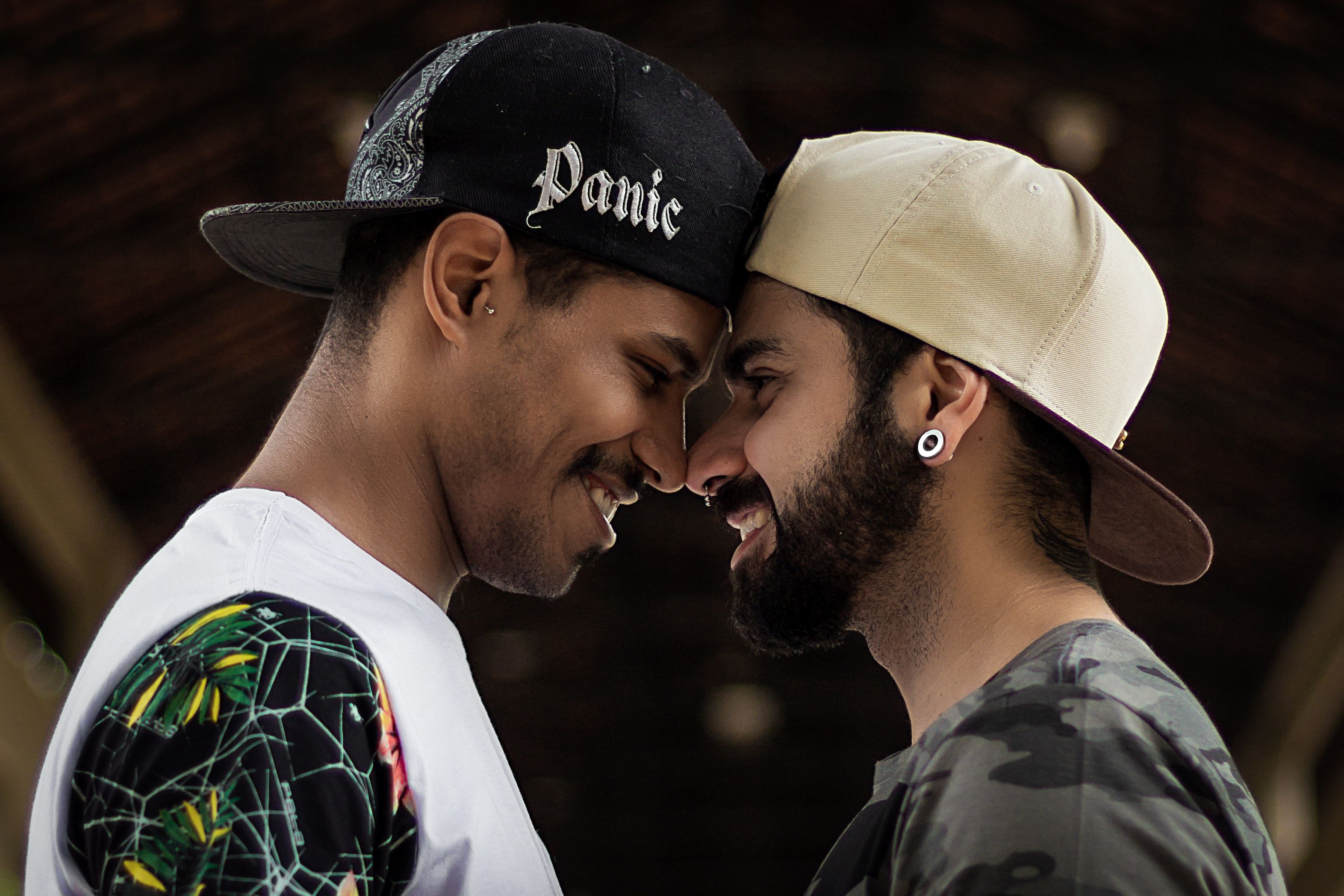If corporations succeed in building the metaverse – and one organization’s real estate becomes the epicenter of Web 3.0 – having BIPOC and LGBTQ people in the creation process could make or break inclusivity efforts in the years to come.
The rollout of social media over the last 15 years has shown us queer life online can be both treacherous and essential. GLAAD made waves last year when they released their first Social Media Safety Index and gave every major platform a failing grade. But according to research published last year in the journal Social Media + Society, social media and online hubs have a positive impact on queer life – especially for young people discovering their identities. Even when the landscape is unruly, queer people embrace the internet to find themselves and one another.
Call me a pessimist, but with so much money flowing into the metaverse these days, it’s hard not to believe that large swaths of Web 3.0 will end up just like Web 2.0. Despite decentralization’s best efforts, our activity in the metaverse will probably gravitate towards hanging out in the coolest, most impressively-engineered worlds – which will be owned and controlled by a few key decision-makers.
Earmarking a block on the chain for the gays to commingle every June is one (very rainbow washed) approach. Having BIPOC and LGBTQ people in the conference room as metaverse worlds are built – or empowering them to actually go out and build it themselves – is a deeper, more impactful alternative.
Bonus: We’ve already been hanging out in the metaverse for years. Let us help you figure out what makes people authentically gather and connect online.
Why Queer People Embrace the Internet
Dr. Erica Ciszek, an assistant professor at the University of Texas at Austin, notes how queer people gathering online to find their peers has been the norm for decades.
“Queer folks and historically marginalized or minoritized groups have often found reprieve in marginal spaces,” they say. “I remember as a queer young person myself gravitating toward MySpace and Livejournal, gathering places in the web 2.0 era.”
“There's a shift happening, for better or worse. I want to be cautious of any utopic promises that the metaverse gives us, because we've already been there as queer people. My research also suggests that younger generations are more skeptical of corporatized spaces.”
LGBTQ people want online spaces where they can find community and belonging. But they also want an online world that they can have a hand in co-creating, because the worlds created for us IRL aren’t always safe and inclusive. This is what makes Web 3.0’s promises of decentralization compelling – if we can actually hold space for decentralized worlds and experiences.
70+ Years of Long-Distance Connection
David K. Johnson, PhD, history professor at the University of South Florida and author of the book Buying Gay, notes that queer people who crave connection will use whatever networks they can to cultivate a sense of camaraderie and belonging.“
Long before there were identifiable gay neighborhoods, LGBTQ people used the available media technology they had to find one another,” he says. “In the 1950s, gay men connected through physique magazines, pen pal services, and mail-order book clubs. Gay entrepreneurs like Bob Mizer identified a hunger to connect among those who purchased bodybuilding magazines and launched his own magazine, Physique Pictorial. As the first magazine targeting a gay market, it helped the gay male community find itself.”
Johnson notes how this opportunity for belonging, whether it be long distance or totally online, is particularly relevant to queer people who live in rural areas with potentially nonexistent LGBTQ communities. We don’t just want the option of online spaces to connect with one another; in many cases, it’s all we have.
“Such early mail-order services were particularly important to LGBTQ folks in areas that had no gay bars nearby,” adds Johnson. “Now that need to connect is probably more acute in countries with strict or combative anti-gay policies, like Poland or Saudi Arabia. That need for community adapts to what spaces and technologies are available, but it doesn’t go away.”
The Queer Metaverse Experiences That Already Exist
Second Life, founded in 2003 by Linden Research, might be one of the earliest examples of virtual worlds we have. The platform has an entire repository of queer spaces to explore; when Georgetown University grad student Donald Jones wrote his master’s thesis on the platform’s queer underpinnings, his interviews with users revealed how being a more fully expressed version of ourselves online helps us define our identities in the real world.
Mixed reality opens up even more immersive opportunities for connection and belonging. AltspaceVR, which is owned by recent metaverse frontrunner Microsoft, has a weekly LGBTQ+ and friends meetup, and dozens of other VR spaces are quickly emerging. An Oculus device or other VR headset will be your ticket in, or you can experience a two-dimensional desktop version if you don’t have a headset.
Have an idea for a space of your own? See if it already exists – or just build it yourself. Beneath the buzz of virtual real estate (and Paris Hilton’s Roblox island) are applications like Topia and Decentraland that let you build your own experiences or drop into worlds built by others.
Hire LGBTQ and BIPOC People to Build the Metaverse
Because the last thing we need is a sequel to The Social Dilemma coming out in 2030 with “Oops, we did it again” messaging. Here are a few final zingers on why inclusion in the metaverse creation process will give you an edge.
- Diverse environments drive results – Research published in the Journal of Sport Management noted how inclusionary measures positively correlate with organizational success. Nuance matters; as filmmaker Albert Maysles once said, “ Tyranny is the deliberate removal of nuance”.
- Gen Z is really, really queer – 15.9% of youngins classify themselves as LGBTQ, according to a Gallup poll from 2020. Additionally, Gen Z has been metaversing for years through programs like Fortnite and Minecraft. Your future employees and decision-makers will be more inclusion-minded, so let’s get it right the first time.
- Rainbow washing is officially annoying, according to science – A survey of 10,000 respondents from DISQO and Do The WeRQ found that more than 27% of consumers wanted to see less LGBTQ marketing during pride month. Instead of trying to push our wants and needs forward for us, do it with us.
“We want inclusion, to be recognized and included,” says Ciszek. “But we also want the agency and ability to critique the empty promises of some of these corporate partners and corporate entities ourselves.”
Create an inclusive experience that people want to hang out in, and the virtual landscape of the future is yours for the taking.
Thanks For Reading 🙏🏼
Keep up the momentum with one or more of these next steps:
📣 Share this post with your network or a friend. Sharing helps spread the word, and posts are formatted to be both easy to read and easy to curate – you'll look savvy and informed.
📲 Hang out with me on another platform. I'm active on Medium, Instagram, and LinkedIn – if you're on any of those, say hello.
📬 Sign up for my free email list. This is where my best, most exclusive and most valuable content gets published. Use any of the signup boxes on the site.
🏕 Up your writing game: Camp Wordsmith is a free online resources portal all about writing and media. Get instant access to resources and templates guaranteed to make your marketing hustle faster, better, easier, and more fun. Sign up for free here.
📊 Hire me for consulting. I provide 1-on-1 consultations through my company, Hefty Media Group. We're a certified diversity supplier with the National Gay & Lesbian Chamber of Commerce. Learn more here.


